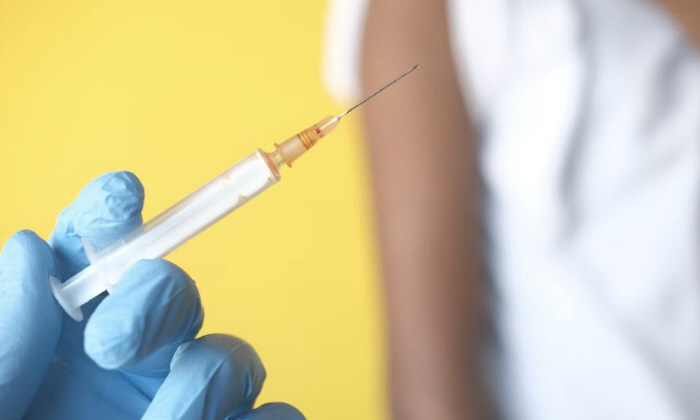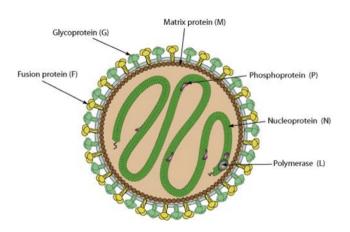What are the essential vaccinations and preventable diseases for pregnant women?
Sep 08, 2025
|
Han Jeong-yeol, a professor of obstetrics and gynecology at Inje University Ilsan Paik Hospital, emphasized in a recently released vaccination guide that "vaccination for pregnant women is the surest way to protect both mothers and babies.'
Professor Han Jung-yeol says that during pregnancy, immunity weakens and becomes vulnerable to infectious diseases, and rubella, nipple, giant cell virus (CMV), and herpes can cause serious problems such as hearing loss, developmental delay, and deformity in the fetus.
In particular, pregnant women infected with the flu are at high risk of complications such as high fever, shortness of breath, and pneumonia, and fetuses are exposed to premature birth or neurodevelopmental abnormalities.
◇Vaccination that pregnant women must receive
The vaccines recommended by experts for pregnant women are flu, Tdap (tidal wind, diphtheria, white sun), and COVID-19 vaccines. The flu vaccine can be administered regardless of the number of weeks of pregnancy. In addition to preventing maternal complications, antibodies delivered to the fetus protect the newborn during the first six months of life.
The Tdap vaccine is effective between 27 and 36 weeks of pregnancy, especially between 27 and 32 weeks of pregnancy.
Professor Han Jung-yeol "If inoculated at this time, antibodies can be transmitted to the baby through the placenta to prevent whooping cough infection. Therefore, every pregnancy should be inoculated", he explained. The COVID-19 vaccine can also be inoculated regardless of the number of weeks of pregnancy, and it is known to significantly reduce the risk of severe illness for mothers.
In addition, hepatitis B and A, pneumococcus, and meningococcal vaccines can be inoculated if necessary. On the other hand, live vaccines such as MMR (measles, mumps, rubella) and chickenpox vaccines are contraindicated during pregnancy. These vaccines must be administered at least one month before pregnancy or immediately after childbirth.
◇ congenital diseases that can be prevented by pre-pregnancy vaccination
Women of childbearing age must check for immunity to rubella and chickenpox before planning pregnancy. This is because infection in the early stages of pregnancy while lacking immunity can leave irreversible damage to the fetus.
Rubella can cause congenital rubella syndrome (CRS) when infected early in pregnancy. This causes serious complications such as hearing loss, cataracts, and congenital heart malformations. About 97% of rubella prevention is possible when vaccinated with MMR (measles, mumps, rubella), but since it is a live vaccine, it cannot be inoculated during pregnancy and must be inoculated at least one month before pregnancy.
When infected in the early stages of pregnancy, chickenpox can also cause congenital nipple syndrome in the fetus, such as skin scars, limb deformities, and central nervous system abnormalities. Since chickenpox vaccine is also a live vaccine, pre-pregnancy inoculation is required, and contraception is safe for at least one month after inoculation.
Cellular giant virus (CMV) can cause hearing loss, developmental delay, and brain damage to the fetus when a pregnant woman is infected. However, there is no preventive vaccine so far, so thorough hygiene management is the only preventive method. In particular, it is important to thoroughly observe hand hygiene when changing diapers or contacting urine and saliva.
Genital herpes is a common viral infection in women of childbearing age, with a fetal transmission rate of up to 50% if the mother is first infected. When a newborn is infected, it can lead to encephalitis, pneumonia, and hepatitis, which can be life-threatening. However, administration of antiviral drugs from the 36th week of pregnancy can reduce the risk of development, and if necessary, cesarean section can prevent neonatal infection.
◇ Vaccination safety and side effects
Even if you were vaccinated with live vaccines such as rubella or chickenpox in the early stages of pregnancy without knowing that you were pregnant, cases of congenital rubella syndrome have been reported, but abortion is not necessary.
The side effects of vaccination are mostly mild. Pain, mild fever, fatigue, etc. may appear at the inoculation site, but usually disappears within one to two days. Professor Han Jung-yeol added that `Although allergic reactions can occur very rarely, the benefits of vaccines are much greater compared to the risk of complications from infectious diseases.'
Professor Han Jung-yeol emphasized that it is important for women of childbearing age to check their immune status and complete the necessary vaccination in advance, and for pregnant women to consult with medical staff to establish a customized vaccination plan.
Professional counseling related to medication or vaccination during pregnancy can also be obtained from the Mother's Safe Center.
|
This article was translated by Naver AI translator.















